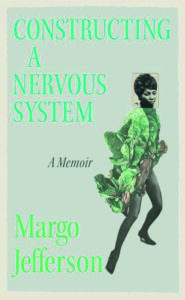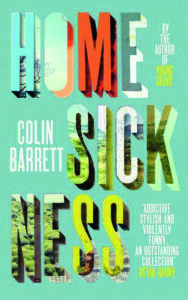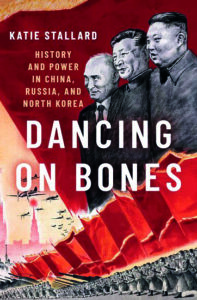
Non-fiction

Super-Infinite: The Transformations of John Donne by Katherine Rundell
Faber & Faber, 352pp, £16.99
In this spirited and empathetic biography, Katherine Rundell warns us against imagining that John Donne’s love poems are any more autobiographical than Shakespeare’s sonnets. What she presents is a poet of almost manic intellectual and metaphorical complexity and underlines the way in which Donne, whether writing about sex or God, sees the human body as the site of the most demanding and exhilarating explorations of what language can produce. His world is a place in which connections are everywhere, in which the material stuff of the world is always “speaking”, pointing and cross-referencing. As a result, Donne’s verse often has the flavour of an experiment. Rundell is every bit as informative about his life, from his conversion from Catholicism, via spells as a soldier of fortune, civil servant, member of parliament and diplomat, to his charisma as a preacher.

Getting Lost by Annie Ernaux, translated by Alison L Strayer
Fitzcarraldo, 224pp, £12.99
The independent press Fitzcarraldo Editions has been publishing English translations of Annie Ernaux’s books with regularity since 2018. Getting Lost, which appeared in September, two weeks before the 82-year-old French author won the Nobel Prize in Literature, contains the diary entries she kept in 1989, while she was having an affair with a younger, married man: a Russian diplomat from the Soviet embassy in Paris. Ernaux detailed this affair in Simple Passion, but while that was a constructed memoir, this is an unfiltered, day-by-day – and sometimes hour-by-hour – account of the lust, excitement and disappointment the relationship generated in her. It is, like all of Ernaux’s work, sparse, intelligent and intensely emotional – and the chicest account of infidelity you are ever likely to read.

Magnificent Rebels: The First Romantics and the Invention of the Self by Andrea Wulf
John Murray, 512pp, £25
Andrea Wulf’s adroit and richly detailed study of the “Jena set” shows how the thinkers who coalesced in a small university town in Germany at the end of the 18th century changed the world. It was in the houses, narrow streets and taverns of Jena, she says, that the modern idea of individuality – the sense of self that today we take for granted but defines our relationship with the world – took shape. Philosophers and literary-poetic figures such as August Wilhelm and Caroline Schlegel, Johann Wolfgang von Goethe, Alexander von Humboldt and Friedrich Schiller all lived, discussed and disputed there. It was their interactions – emotional as well as intellectual – that, Wulf persuasively shows, helped bring about the transition from enlightenment rationalism to romanticism.

The Climate Book by Greta Thunberg
Allen Lane, 464pp, £25
What does the world’s best-known protestor do during a global lockdown? She organises in a different way, which is where Greta Thunberg’s The Climate Book began – an anthology of essays commissioned from more than 100 scientists and thinkers by the Swedish school striker (and New Statesman guest editor). This is not a children’s book, any more than the climate crisis is a “children’s” issue, but an ambitious attempt to pull together the most urgent thinking on the 21st century’s greatest challenge. Contributors include Naomi Klein, Thomas Piketty, Amitav Ghosh and Nicholas Stern, and the essays – mostly short and tightly argued, amounting to a sort of primer for the apocalypse – range widely across degrowth, climate reparations, the psychology of denialism, and why leaders make worse decisions on a hot planet. Sobering, accessible and handsomely produced, this is an essential guide to how we got here, and what needs to happen next.

The Death of Consensus: 100 Years of British Political Nightmares by Phil Tinline
Hurst, 472pp, £20
Despite his title, the radio producer Phil Tinline does not believe that consensus is an especially helpful idea: “A period of consensus might best be defined as one where there is agreement, at least, on what to reject,” he says. Nevertheless, he describes the past 100 years in Britain as a series of crises – unemployment, strikes, inflation and Brexit – in which consensus, in another definition, “the limits that shape the politically possible”, breaks. Victorian economic orthodoxy, the postwar settlement and Thatcherism all reigned and then fell. Tinline’s narrative of competing nightmares is as timely as it is original.

Constructing a Nervous System by Margo Jefferson
Granta, 208pp, £20
The Pulitzer Prize-winning American critic Margo Jefferson – the author of On Michael Jackson and Negroland: A Memoir – is a lithe and always surprising writer. Here she blends memoir and arts criticism, switching between first, second and third person at a whim, borrowing extensively from other texts, italicising some phrases, bolding others. She examines the artists whom, as a child, she imagined to be her alter egos – Bing Crosby, Ella Fitzgerald, Ike Turner – and in doing so paints a remarkable portrait of herself as a singular kind of performer.

Rule, Nostalgia: A Backwards History of Britain by Hannah Rose Woods
WH Allen, 384pp, £20
Today’s culture wars are the starting point for Hannah Rose Woods’ intelligent first book. “We are,” she writes, “in a strange position where each call for remembrance is recast as forgetting.” From religion in the 16th century and a post-Industrial Revolution yearning for old rural life, to the idea that Britain stood alone during the Second World War and the many misty-eyed illusions that led to Brexit, Woods proves that while the object and expression of nostalgia may have changed, the British – of the left, the centre and the right – have always lamented that things aren’t what they used to be.

A Fortunate Woman: A Country Doctor’s Story by Polly Morland
Picador, 256pp, £16.99
Polly Morland, a journalist and film-maker, discovered John Berger’s 1967 account of a country doctor’s life, A Fortunate Man, when clearing her dementia-afflicted mother’s house. Her own book returns to the same valley where Berger’s GP worked and follows the life of its current, female doctor. It is a book that deepens our understanding of the life and thoughts of a modern doctor, and the modern NHS, and expands movingly to chronicle a community and a landscape. Here are the difficulties, decisions, risk assessments, ethical questions and occasional spells of anguish that make up a GP’s normal day, as well as the jokes, tea and levity. Morland treats them all with compassion.

Disorder: Hard Times in the 21st Century by Helen Thompson
OUP, 384pp, £20
This book stands tall among the proliferation of titles that attempt to make sense of our contemporary age of crises. Helen Thompson, an academic and NS contributor, maps the intersecting relationships between energy, global monetary policy, and the state of liberal democracy. If Thompson can be charged with neglecting the influence of policymakers and intellectuals on recent global events, she has nonetheless provided a formidable corrective in her own right: exposing the central role of fossil fuels in shaping the history of the present.

An Immense World: How Animal Senses Reveal the Hidden Realms Around Us by Ed Yong
Bodley Head, 464pp, £20
The science writer Ed Yong’s book is not just a study of the myriad wonders of the natural world – though wondrous they certainly are – but also a panoramic, complex portrait of the sensory capacities that underpin a multitude of life. Species of whales, wasps, ants, bats have sensory abilities that are beyond our ken, and modern science is only just beginning to explain their ultrasonic calls, chemical secretions and other assorted superpowers. In uncovering all this, Yong also shows why we should give more thought to our place in the world, since our abilities now seem not nearly as special as we’d assumed.
Best fiction of 2022

Companion Piece by Ali Smith
Hamish Hamilton, 240pp, £16.99
A coda to Smith’s Seasonal Quartet, this is a discursive lockdown story with a historical subplot. The central character, Sandy – or “Shifting Sand” – is worried about her ill father and livid at the British government. Circling around this is the tale of a vagrant blacksmith girl from pre-modern times. What is real and what is dreamed is not totally clear. But the characters’ sparring and Smith’s immense facility for wordplay provide both humour and hope.

Lessons by Ian McEwan
Jonathan Cape, 496pp, £20
McEwan’s longest and most autobiographical novel is also his most richly enjoyable for many years. Plotting the life of its protagonist Roland Baines against a series of global events, it explores how the personal and political collide: most clearly when the looming Cuban missile crisis pushes the teenage Roland into an abusive relationship with his piano teacher. The prose may be baggy but the set pieces are as gripping as you would expect, and the nuanced reflections on fatherhood, forgiveness and the messiness of living reverberate with hard-won emotional truth.

Diego Garcia by Natasha Soobramanien & Luke Williams
Fitzcarraldo, 269pp, £12.99
This thrillingly inventive novel, which won the 2022 Goldsmiths Prize, has a real-life event at its heart: the forced expulsion by the British military of the inhabitants of the Chagos Islands between 1968 and 1973. Natasha Soobramanien and Luke Williams approach this colonial injustice with sensitivity and ingenuity, creating a pair of insolvent writers who are stuck in a Groundhog Day-style existence in Edinburgh before they meet a stranger named after Diego Garcia, the largest of the Chagos Islands, and become obsessed with the case. Mixing fragments of first-hand accounts from Chagossians with vivid and often funny descriptions of the writers’ own plight, Diego Garcia asks the question: how do you tell a story that isn’t yours to tell?

Homesickness by Colin Barrett
Jonathan Cape, 224pp, £14.99
A vigilante shooting on a farm; a samurai sword unsheathed in a bar; a failing poet buying cannabis from his schoolgirl dealer: Colin Barrett’s scenes are full of humour and small-town Irish colour. Then there’s the eye- and ear-catching prose: strong men breathing “coltishly through their noses”; a “racing, paper-thin beat” escaping from an earbud; the River Moy “dark as stout and in murderous spate”. Barrett’s greatest skill is opening his scenes up into existential questions and emotional truths. His second collection confirms him as one of the very best short-story writers in the business.

Maps of Our Spectacular Bodies by Maddie Mortimer
Picador, 448pp, £14.99
In Maddie Mortimer’s moving and remarkably accomplished debut novel Lia is diagnosed with terminal cancer. The book explores her changing relationship with her body as her disease develops, and the impact this has on her husband and her 12-year-old daughter, Iris. The form is playful: prose sits alongside verse, and the text forms experimental shapes on the page. Most intriguing is another, troublesome voice inside Lia, who comments on and intervenes in events. Mortimer has called this narrator “the book’s destructive core, but also its creative essence”.

There Are More Things by Yara Rodrigues Fowler
Fleet, 464pp, £18.99
Yara Rodrigues Fowler’s second novel spans continents and generations. When Catarina moves in to a rented flat in Mile End, east London, she finds little in common with her new room-mate, Melissa, besides their Brazilian heritage. But their friendship blooms as they experience the turmoil of 2016: the impeachment of President Dilma Rousseff in Brazil, Brexit and the election of Donald Trump. In its present-day sections the novel fluently captures the rhythms of life as a millennial in the UK capital; in leaping back in time to the story of Catarina’s revolutionary aunt in Brazil in the 1970s, it widens its lens and deepens its themes of activism and hope. This is political fiction in its best sense: not drily didactic but original and energising.

Acts of Service by Lillian Fishman
Europa Editions, 224pp, £12.99
Part erotic Bildungsroman, part melancholy comedy of manners, this debut novel by the American author Lillian Fishman follows Eve, whose nude photos, which she posts on an online message board, lead to a threesome. She meets Olivia, an artist, whom Eve learns is acting on behalf of Nathan, a tall, wealthy Manhattan investor. Olivia is in love with Nathan, and Eve becomes fascinated by the pair’s unequal sexual dynamic and the role that coercion plays in their relationship. This is a searching book that arrives with understated confidence and a fully formed bank of ideas about intimacy, sexual ethics and contemporary mores.

Liberation Day by George Saunders
Bloomsbury, 256pp, £18.99
The latest collection from the author of Lincoln in the Bardo deposits the reader in familiar territory, yet it is this author’s gift to always make his claustrophobic settings seem fresh. George Saunders-world is similar to the one we know: but the inequality that bedevils our society has been codified to an extent that is moving and tragic – and also funny and deeply human. In Saunders’ eerie tales, characters are held captive as attractions in theme parks, or enslaved by apparently nice, middle-class folk; they suffer and make the best of their situations – as perhaps all of us do.
From New Statesman writers

Dancing on Bones: History and Power in China, Russia, and North Korea by Katie Stallard
OUP, 320pp, £22.99
The NS China and global affairs editor combines reportage and analysis in her account of how three leaders – Vladimir Putin, Xi Jinping and Kim Jong Un – manipulate history to bolster their authoritarian rule. This is a timely work about the politics of memory, myth and national storytelling.

This Is Not Who I Am: Our Authenticity Obsession by Emily Bootle
Ortac Press, 192pp, £10.99
What does it really mean to be “authentic”? This is the question at the core of Emily Bootle’s debut essay collection. As digital culture continues to complicate portrayals of selfhood, these six essays – on subjects including celebrities, wellness and identity politics – question the urge to “live your truth”.

Bad Jews: A History of American Jewish Politics and Identities by Emily Tamkin
Hurst, 320pp, £20
Amid fears of rising anti-Semitism comes this study of the past 100 years of American Jewishness. Beginning with the significant numbers of Jewish people who migrated to the US in the 1920s, Tamkin explores the faith’s conflicting – and ever evolving – positions on race, assimilation, politics and Israel.

Big Fat Negative: The Essential Guide to Infertility, IVF and the Trials of Trying for a Baby by Emma Haslett and Gabriella Griffith
Piatkus, 352pp, £14.99
Here, Griffith and Haslett combine first-hand accounts with advice from medical experts. Infertility is often an isolating experience, and this book brings a sensitive and humorous approach to a topic that is under-discussed and misunderstood.
Purchasing a book may earn the NS a commission from Bookshop.org, who support independent bookshops
This article appears in the 07 Dec 2022 issue of the New Statesman, Christmas Special



